Everyone who works with Google AdWords knows how crucial it is to attract potential customers to their offers. One method for this is ad extensions. In particular, the extensions for additional information provide great opportunities to make an ad more meaningful and engaging. This guide will show you how to effectively use and customize additional information to generate more clicks and ultimately more customers.
Key Findings
- Additional information can enhance your ad and provide targeted information.
- The extensions can only be displayed in certain situations.
- It's important to regularly check how and if your additional information is being displayed.
Step-by-Step Guide to Using Additional Information
Step 1: Identify Additional Information
You should consider what additional information is particularly relevant to your customers. This can include flexible aspects like “free shipping,” “24-hour customer service,” or special offers like “lowest price guarantee.”
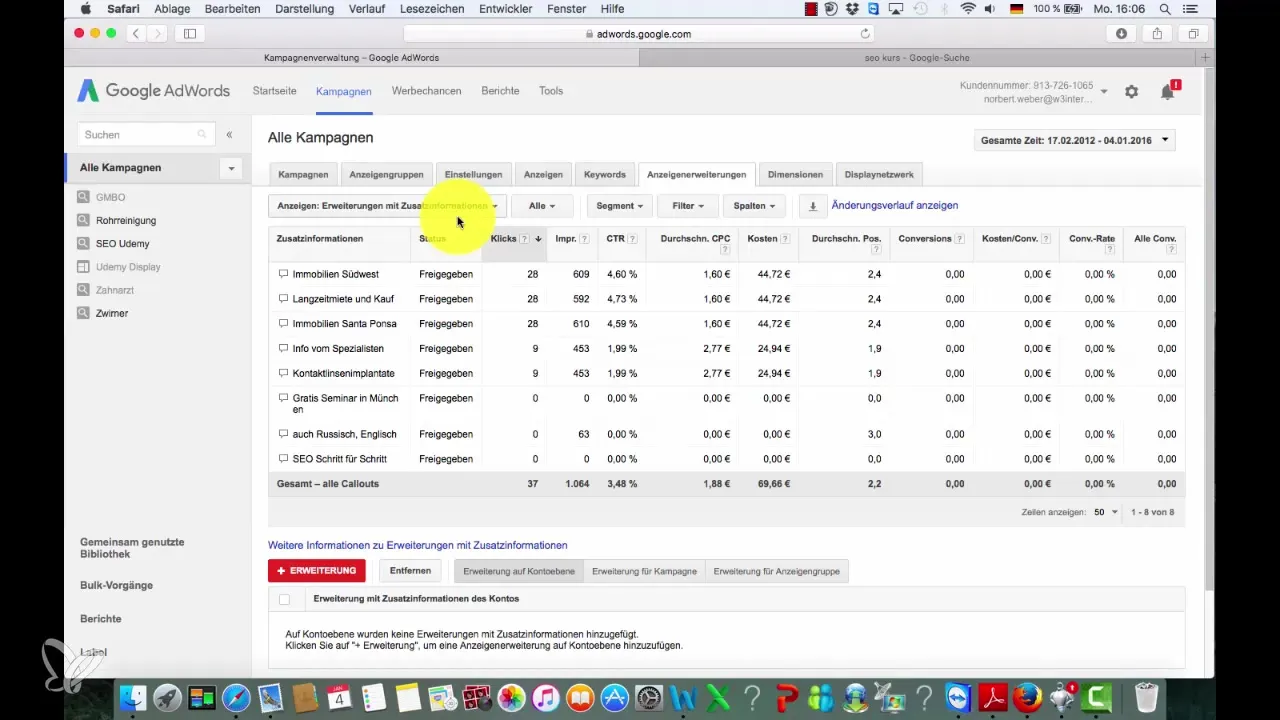
Step 2: Create Additional Information
With a plan on which information you want to use, you can enter it directly into your Google AdWords account. Think of engaging text that appeals to potential customers and highlights the added value of your products or services.
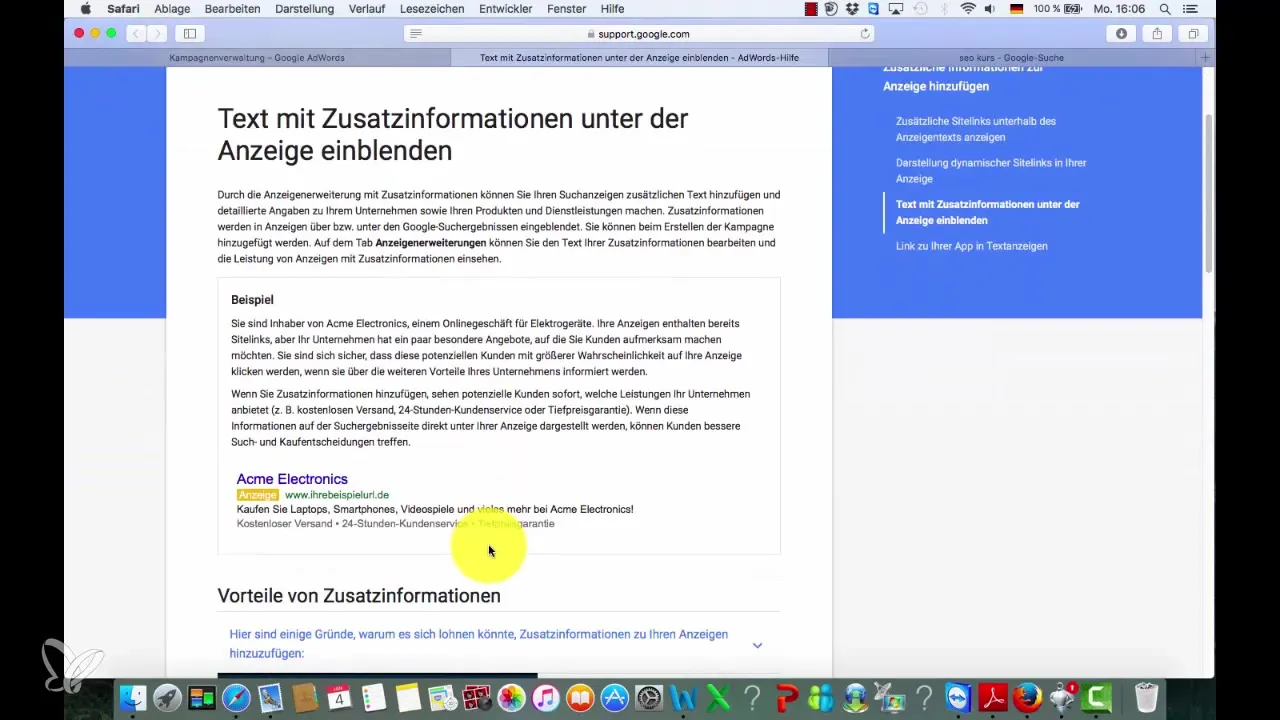
Step 3: Customize Information
Keep in mind that Google decides whether and when this additional information will be displayed. Therefore, it may not be shown for a particular ad, even though it is set up. This depends on various factors, such as competition or bids from other advertisers.
Step 4: Check the Ads
To find out if your added additional information is actually being displayed with your ads, you must regularly check them. Look for relevant keywords that you have already set up to see if your ads and extensions are visible.
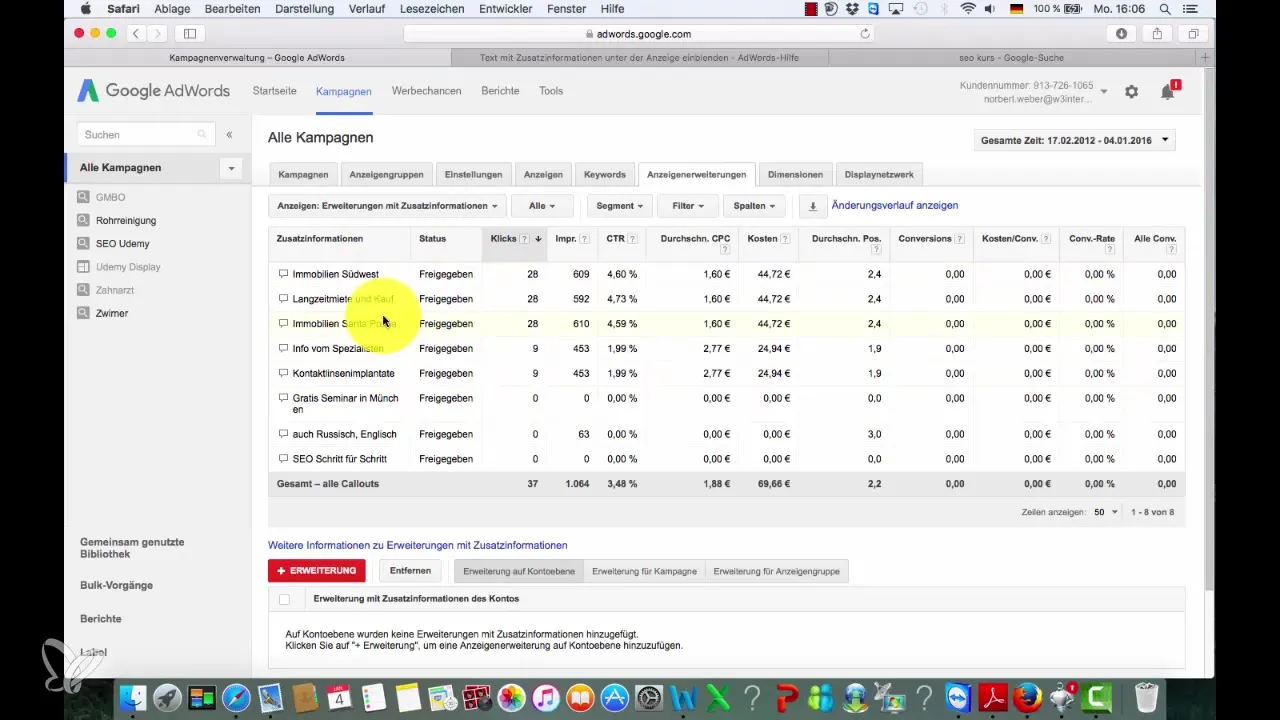
Step 5: Make Adjustments
If you find that your additional information is not being displayed, it may be helpful to make adjustments. This can include changes to the wording or even new information. Ensure that your information is always up to date and meets the needs of your target audience.
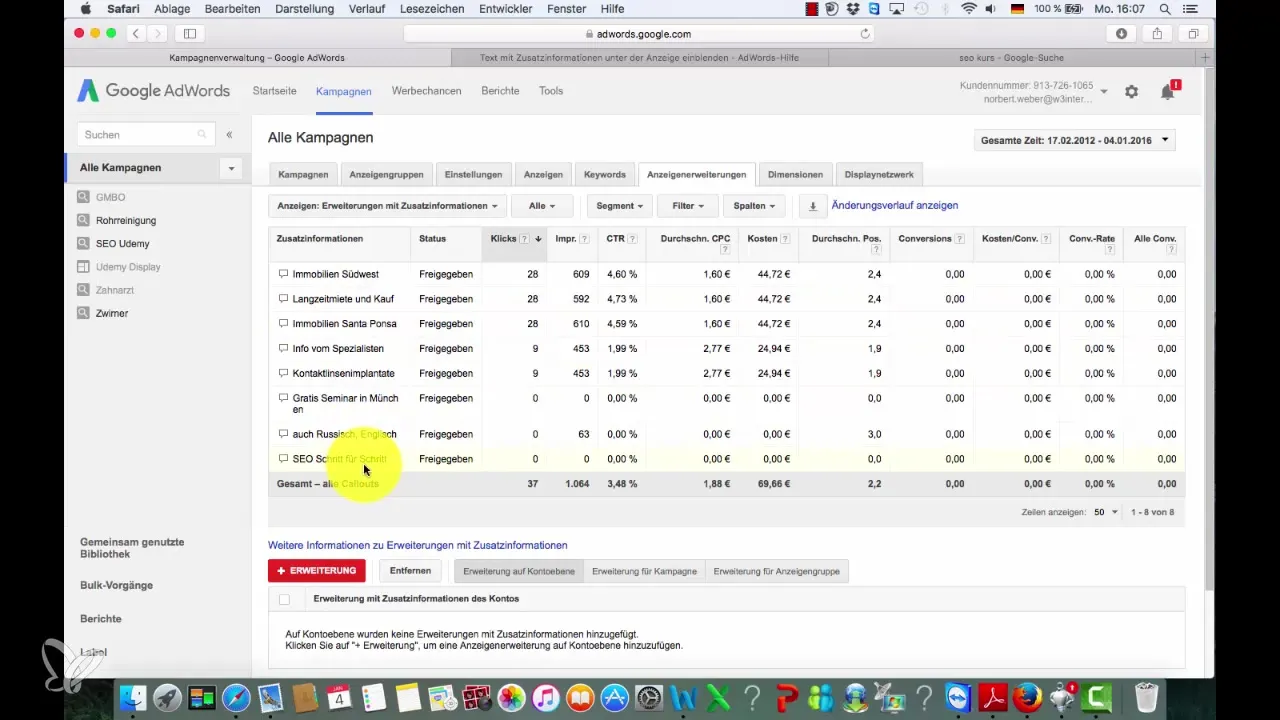
Step 6: Save and Publish
Once you've reviewed everything, click on "Save" to apply your changes. Your new additional information must be reviewed by Google before it goes live.
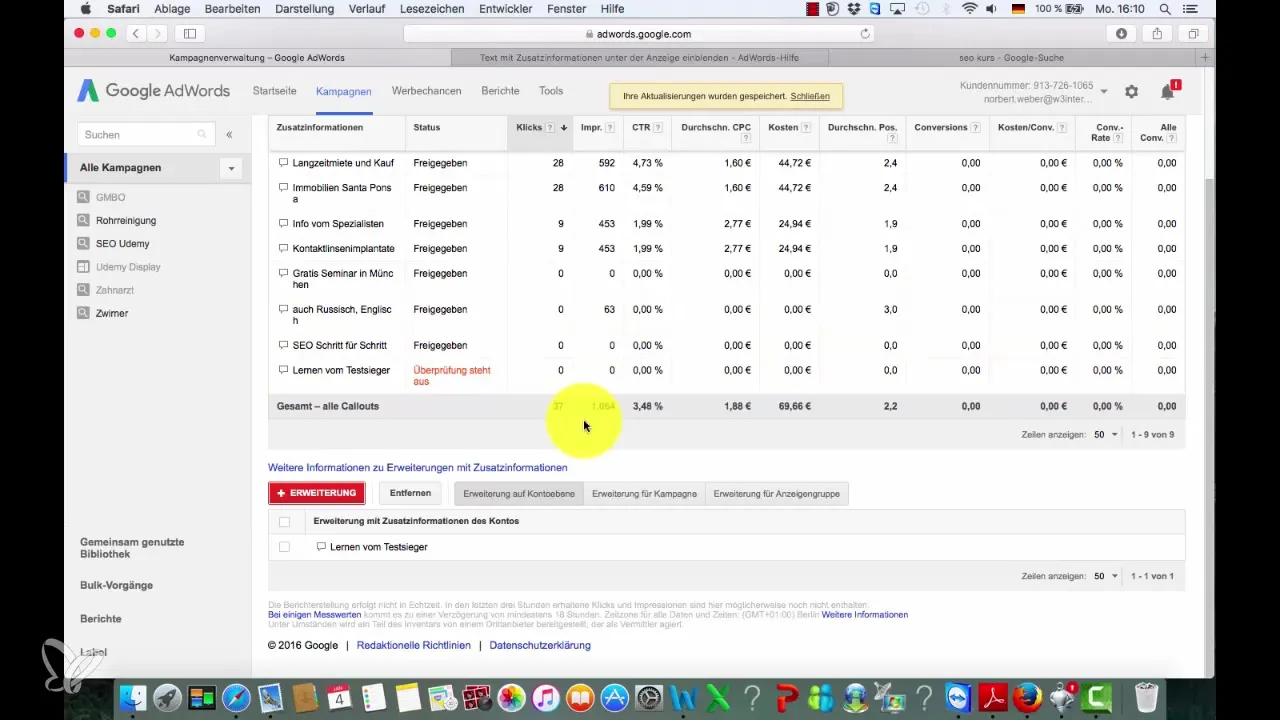
Step 7: Long-Term Monitoring
Keep an eye on how your additional information is performing. This can give you valuable insights into whether you are on the right track or if adjustments are needed. Use Google's analysis tools to gather information about clicks, impressions, and the performance of your ads.
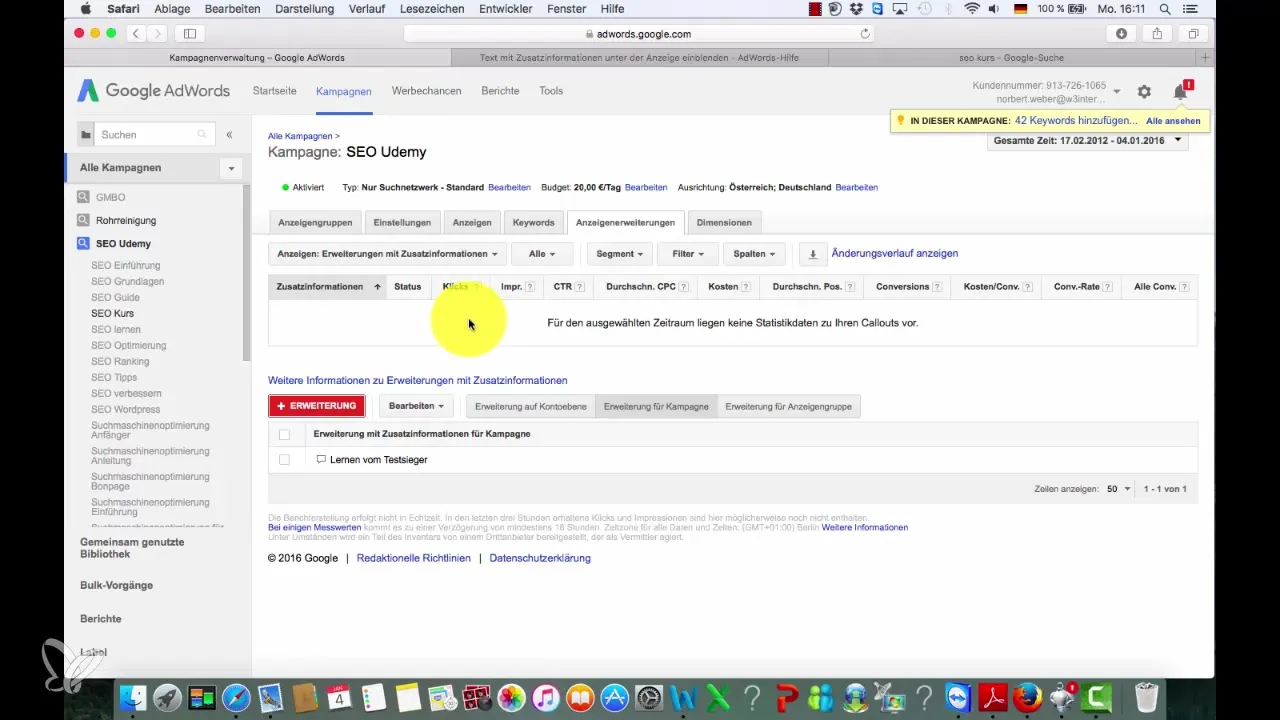
Summary – Google AdWords Ad Extensions: Optimally Use Additional Information
Additional information is a powerful tool to optimize your Google AdWords ads and convey targeted information to potential customers. Pay attention to the importance of regular checks and adjustments. By strategically selecting and maintaining the right extensions, you can ensure that your ads consistently achieve the desired results.
Frequently Asked Questions
How can I add additional information in Google AdWords?You can add additional information in your Google AdWords account under ad extensions.
Why are my additional information not being displayed?The display of additional information depends on various factors that Google decides, such as competitive behavior or bids.
How often should I check my additional information?It is advisable to regularly review your additional information, at least once a week, to ensure they are being displayed optimally.


